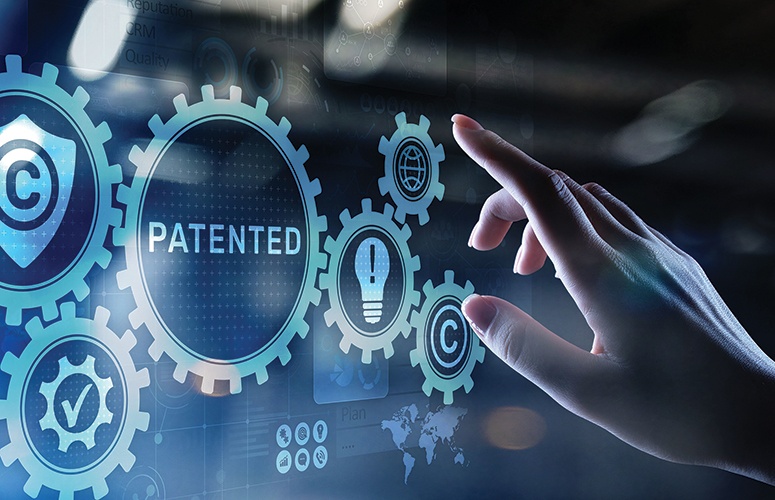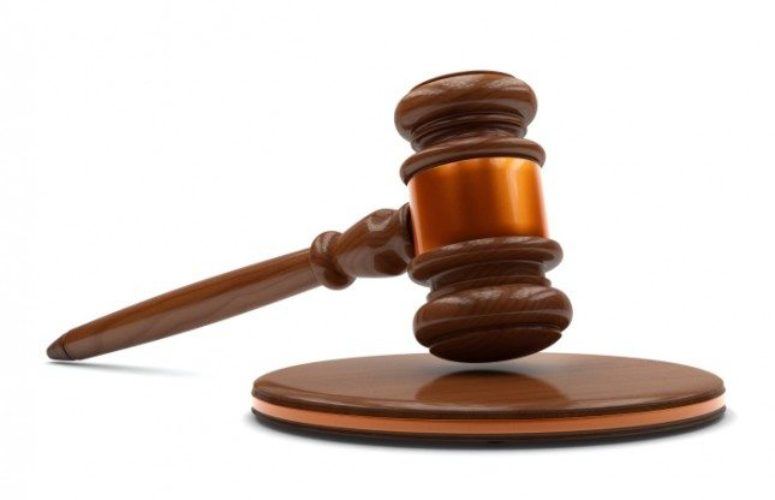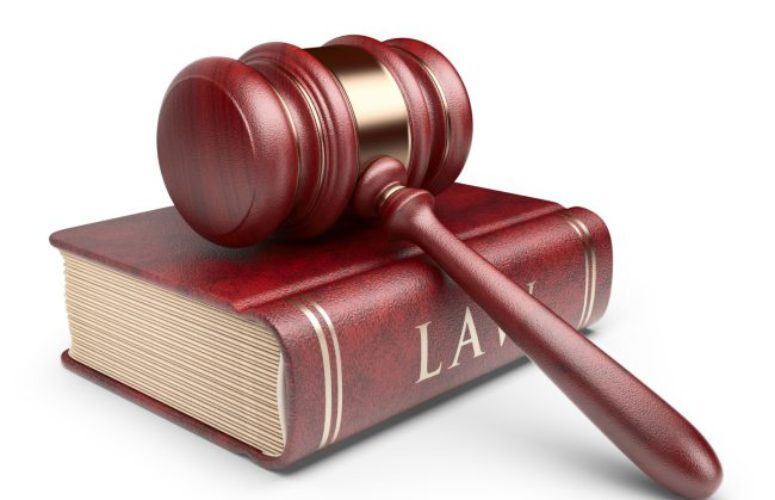
Considering a High-Tech Startup? Call an IP Lawyer
Turning an idea into a business in the cut-throat world of high-tech requires a good IP attorney.
By Joe Cavaluzzi, Contributing Writer On Jun 13, 2019Having a hot product isn’t the only thing you need to succeed as a high-tech startup. In fact, your product or idea is only as good as your ability to protect it from competitors, which is why it makes sense to bring in a legal team before you decide to make your move.
Often, the people behind the idea face their greatest challenges from what they don’t know. Understanding the market demand; knowing how proprietary your proprietary information actually is; understanding what the companies you hope will put up the money to back your idea are looking to invest in, are essentials that elude many fledgling high-tech entrepreneurs.
Hiring an intellectual property attorney at the start of your startup can help you hurdle some of these obstacles. Ignorance can be fatal. It can turn what you thought was a great idea to build a company into something that becomes an open sourced code for others to use for free.
Protecting You IP
Intellectual property is the largest investment a high-tech startup is likely to make, and it is the most important to protect.
“Don’t skimp on the IP,” advises Daniel A. Scola, Jr., managing partner in the Parsippany-based law firm of Hoffmann & Baron. “Startups often don’t know how important protection is right away. They’ve made certain things public without keeping them confidential. In the patent area, you need to take steps at the Patent Office before you go public or you’re going to lose your rights.”
Companies have a one-year grace period after registering an idea with the US Patent Office to seek a patent.
“It’s knowing when to capture the invention,” Scola says. “The best way to attract investors is to have a proprietary position and a free-to-operate position. You need to be able to say, ‘I have this exclusively. I have a fence around the technology.’ But that’s only one thing. It’s not just the right to do something, it’s the right to exclude others from doing it. You need to make sure there isn’t someone else out there with a right to exclude you from doing something.”
Having the help of an IP attorney at the beginning can help a high-tech startup develop value.
“My approach is to help a company become valuable. I think that’s part of my job,” says Rhonda Carniol, an IP attorney who leads the media and technology group within the IP group at CSG Law. “If they are looking to exit the business at some point – because businesses are bought not sold – you’ve got to make yourself attractive. If you start with that process in mind, it will help.”
Searching the IP Landscape for Investors
In both start-up or operational expansion, Carniol says investors consider three factors very important: Will there be a market demand for the technology or the business services? Who are the founders? Does the company have valuable intellectual property?
Companies that demonstrate that a product or service will be in demand in a large market are likely to get funding, as are those whose founders are working full-time at the new venture and have invested their own capital. They are demonstrating a significant incentive to be successful, Carniol says. They also need to show how many companies are potential customers for their product, the problem their new product will solve, and how many of those potential customers have the problem.
The International IP Landscape
The nature of high-tech products often requires companies to negotiate international markets and patent requirements, adding additional complexities to developing a startup strategy.
“There is a move toward harmonization of a global IP system, (but) there is still much discontinuity on several issues that must be addressed by a global IP strategy,” notes William A. Di Bianca, a partner of Lerner David, a boutique IP law firm in Westfield. “A sound global IP strategy includes consideration of where inventions are created, where products are manufactured and sold, and where services are performed.”
China, notorious for pirating IP that is patented in another country, has made progress in respecting foreign patents.
“It changes with their economy,” says Di Bianca, whose firm has an office in China. “In high-tech, when investments being made are helping grow the economy, a country is more likely to respect the IP of others. We’ve seen improvements, but it’s going to take some time.”
Robert Gabrielski, an attorney at Norris McLaughlin, in Bridgewater, notes that being able to identify an abuse of a high-tech company’s IP abroad is essential to protecting it.
“R&D is absolutely critical. This is a very fast-moving business area because you are dealing with high-tech that is changing constantly,” Gabrielski says. “You not only need the infrastructure, you need to establish cybersecurity protocols and you have to monitor the use of your brands. You have to react and deal with it if someone in Europe is using your proprietary information.”
Developing a Strategic Plan
Attorneys assisting high-tech entrepreneurs go beyond just giving advice on patent law in helping develop a startup strategy.
“We start off working with them to define the essence of what they want to do. We want to understand how they aim to transfer this into a product or service. Then we can structure a plan,” Di Bianca says. “We make sure there is congruence between the plan we’ve prepared and what they are trying to do.”
To determine whether to file for a patent, a company needs to determine how strong the patent would be in terms of the possibility of potential litigation being brought against the start-up, Carniol says. “To a large extent, when you go for a patent, you’re disclosing what your product is. When you start filing internationally, it is very expensive, and you have to weigh that. Is it worth it?”
Serious research is required to ensure you will be able to use your patent once the Patent Office issues it. A broad patent that would keep everybody out may seem, in principal, like the way to go. However, is it more difficult to police. A more narrowly focused patent is easier to protect and police, but startups often worry it will limit their market.
“You get a patent and own that improvement. But you can’t use it because someone else has a dominant right to the larger technology (within which your product may need to function),” Scola says. “Startups don’t often understand this freedom-to-operate right (the freedom to test, market, or sell a product or service in a specific area). You need to know what the landscape of IP is in order to know where to step and not to step.”
Recent Court Ruling Changes
Timing of Infringement Suits
High-tech startups also need to keep up on changes in patent and copyright law when considering whether to file for copyright protection. On March 4, 2019, the Supreme Court ruled that a lawsuit for copyright infringement can only be filed after the U.S. Copyright Office issues a registration.
“The copyright office is backed up, so there is a delay before you can file a suit. In high-tech, where things happen so quickly, you don’t want a delay,” Carniol says. Copyrights are not the same as patents. Someone who varies the code of a copyrighted product might not be infringing on the copyright. “When you have something that is core to your system, think about filing a copyright right away. This enables a copyright owner to seek statutory damages and attorney’s fees in an infringement action,” Carniol explains.
Business Incubators Can Help
Dan Guadalupe, co-chair of litigation at Norris McLaughlin, says startup clients sometimes can take advantage of high-tech business incubators such as the Rutgers Food Innovation Centers in Bridgeton and Piscataway.
“A lot of startups hit a wall when they are growing fast, and they don’t know how to scale up. They need capital. They don’t know what they don’t know,” Guadalupe says. “It takes a lot of counseling and help to take it to the next level.”
While incubators make some of that counseling available in inexpensive spaces, and can foster innovation and collaboration, startups must be vigilant to ensure their IP assets are protected.
“There’s really is no right or wrong answer to whether you should locate in an incubator,” notes Di Bianca of Lerner David. “We want to make sure our client’s confidential and proprietary information, including trade secrets, is maintained wherever they conduct their business. Incubators can be great for collaboration, but we want to always make sure our client’s confidential information is secure.”
Conclusion
Flexibility remains a key to success in developing a high-tech startup strategy, which requires tending and reacting to the unforeseen. An IP attorney can guide high-tech entrepreneurs around the surprises.
“We constantly revisit their business plan,” Di Bianco says. “We ask if their goals have changed and consider whether a change in IP strategy should be made.”
Five Ways to Make Your Internet Idea Patentable
Improving user interfaces is one of several options for patent protection.
By Jonathan Bick and Steven DiPasquo
Since a Supreme Court ruling in 2014 (Alice Corp. v. CLS Bank International), most attorneys have agreed that Internet ideas are not patentable. Now, due to a new court ruling, most patent attorneys will say “it ain’t necessarily so.”
In Alice, The United States Supreme Court ruled that “merely requiring generic computer implementation fails to transform [an] abstract idea into a patent-eligible invention.” As a result, patenting Internet ideas became much more difficult, until now.
Recently, the courts found that one particular type of improvement which is unique to Internet ideas was eligible for patent protection, namely Internet user interface improvements. In Tinder v. Bumble 6:18-cv-00080 (2018), the Court found that the patent around the act of swiping improved the existing interface technology and thus resulted in patent eligibility. Improving user interfaces is one of several options for the protection of Internet ideas with a patent. Others include:
- Using special purpose hardware with your Internet idea, combining cell phones or digital watches with software to implement an Internet idea results in patentable novelty;
- Having your Internet idea result in the ability of using an Internet device for a new purpose, such as a tablet as a local broadcasting hot spot which results in a patentable invention;
- Using your Internet idea to improve electronic device user interface, for example, using a local cell tower to service a broader area results in a patentable combination;
- Making your Internet idea change Internet communications, such as by changing the display to accommodate an Internet user’s disability. Specifying the particular type of data to be displayed and the specific way to display it also results in a patentable matter.
Since 2014, most Internet inventors have been told that their ideas were not patentable. They should now reconsider and seek patent protection.
Jonathan Bick and Steve DiPasquo are Registered Patent Attorneys at Brach Eichler in Roseland.
To access more business news, visit NJB News Now.
Related Articles:





